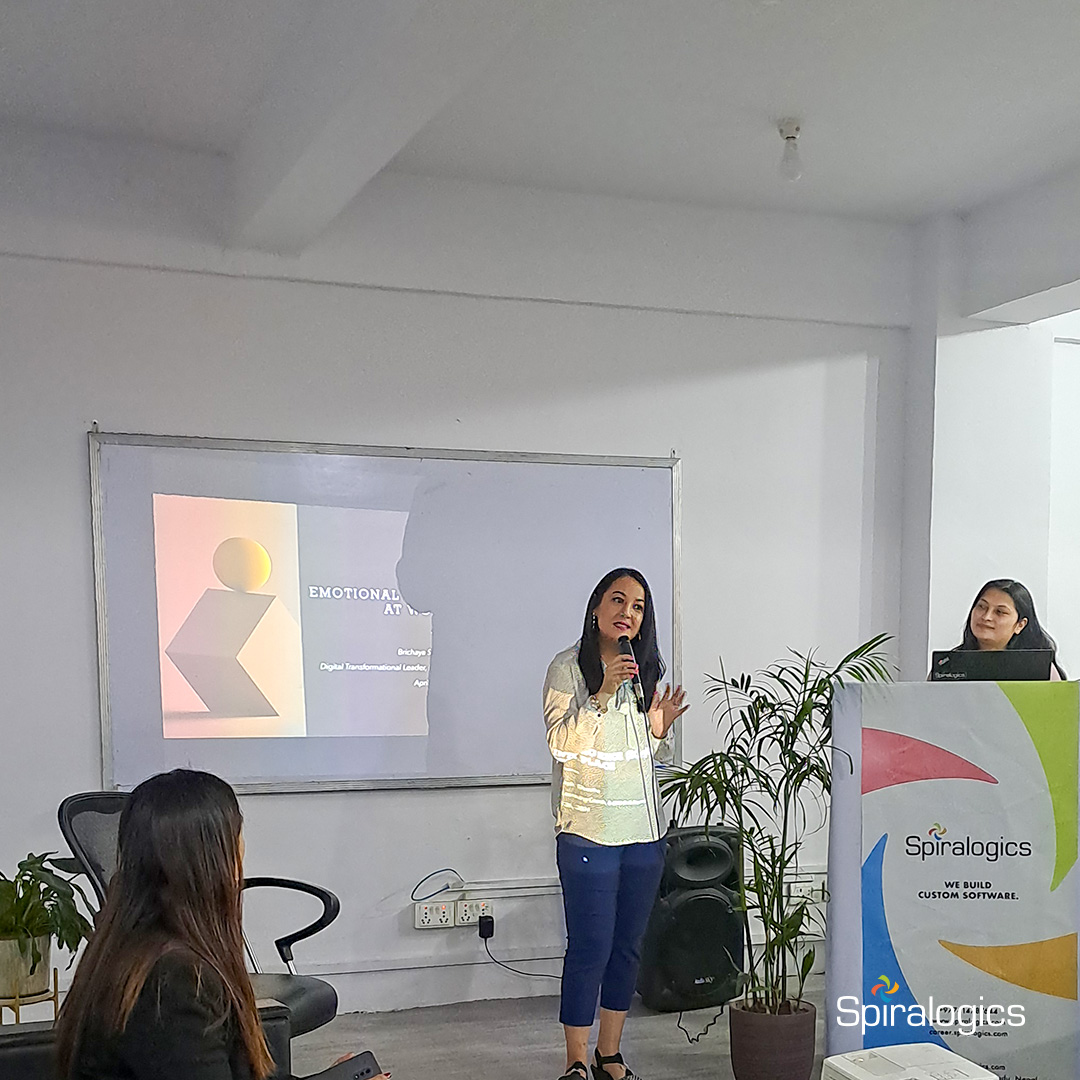
Amidst the array of events hosted at the office, one that particularly captivated for its depth was the session on Emotional Intelligence (EQ). Extending sincere gratitude to our CTO/COO, Saunak, for suggesting this session, and to our dedicated team for their efforts in organizing and facilitating this valuable event.
This blog gathers all the insights and knowledge exchanged throughout the session.
Let's start with the basics: What exactly is EQ?
We all have heard what an IQ is and how it deals with individual or group in terms of intellectual abilities, though they are not the sole measure of a person’s potential. Many individuals may find it confusing to differentiate between IQ and EQ.
Among all the other hard skills, EQ can be said to be one of the most overlooked skills in the work environment or life in general.
So, what is EQ? Simply put, it is the art of understanding and managing one’s emotions and emotions of others around you in a positive way. But mastering EQ is not an easy skill. This could be seen as one of the primary aspects of emotional intelligence - emotional intelligence starts from within, demanding significant dedication and practice. After all, there's no one who knows you better than yourself.
EQ vs IQ
IQ is determined through standardized test that gives a measurable result. In contrast, EQ is more about social skills, emotional management and how one navigates communication and relationships.
IQ is more about how smart you are as in books smarts and your ability for problem-solving. It's all about how quickly you can grasp new things and solve puzzles.
On the other hand, EQ is more of understanding emotions-both your own and other people’s. It's being aware of your feelings, controlling your emotions when needed, and understanding the effects of your emotions on others around you.
EQ in era of AI
In the age of artificial intelligence, some might say that AI will dominate, and the importance of EQ could diminish. However, we shouldn't forget that human intelligence (HI) will always surpass AI. After all, humans are the ones who bring innovation and controls machines, while ensuring that human intelligence remains dominant. While AI may excel in certain areas, it lacks the depth and complexity of human consciousness and emotion.
The session also delved into the five key components outlined by psychologist Daniel Goleman:
- Self-awareness: This simply means you recognize your personal strengths and weaknesses. This involves grasping and controlling your own emotions and knowing more about yourself, both in personal and professional settings.
- Self-regulation: Being present and navigating difficult situations by transforming negative thoughts into positive ones helps one be in-charge of their actions. It’s important to know when to pause between emotions and subsequent actions.
- Motivation: Self-motivation means pushing yourself forward, especially when facing challenges and setbacks, and knowing that everyone has their own difficulties and setbacks. Always finding the inner drive to keep going, regardless of obstacles and pushing yourself to overcome them.
- Empathy: Viewing things from other’s perspective by shifting your focus from yourself to others to understand their situation so that you can properly empathize with them. It’s important to not just listen but also think, feel and make decisions from other’s point of view too.
- Social Skills: In life, developing social skills is as crucial as any other skill. The more you engage with others, the stronger your EQ becomes. This benefits when handling conflicts with ease, allowing open discussions and effective resolution.
Why EQ at workplace?
Now, you may wonder if it isn’t just being empathetic and understanding other’s feelings enough, especially in a professional environment. EQ helps you to use empathetic feelings in a way that fosters better work relationships and minimizes communication gap. Practicing EQ equips you with skills to effectively manage conflicts, promoting a positive and supportive work environment which in return leads to job satisfaction.
Moreover, integrating EQ into your daily life encourages team collaboration, attentive listening which promotes diversity and inclusion within a team. Understanding your authentic self and controlling your emotions positively impacts effective leadership which inspires and motivates the team, resulting in overall performance and morale.
The session concluded with a focus on crucial soft skills essential for IT professionals. Communications has always been an important part of every professional field and one of the ways to elevate customer satisfaction is by mastering effective communication. With a strong mind set you can navigate complex challenges with strong problem-solving abilities and embrace change with adaptability in dynamic environments. Encourage synergy through collaborative teamwork and maximize efficiency with proficient time management. Knowing to prioritize customer needs with a dedicated focus mindset helps in retaining customer trust in the long-term. Learning how to resolve conflicts constructively to maintain harmonious relationships and deliver impactful presentations with polished communications skills.
The EQ session was an eye-opening experience, that provided valuable insights into the importance of practicing EQ. It highlighted on how knowing your emotional state, controlling your emotions, maintaining calmness and thoughtful decision-making can benefit in resolving challenging situations.
About the Author:
Jenisha Maharjan is a Senior Technical Content Writer at Spiralogics overseeing all the technical documents related to projects and ensuring they meet established standards. Beyond her professional role, she loves spending time with her family and indulging in travel vlogs, dramas, and lifestyle YouTube videos.


